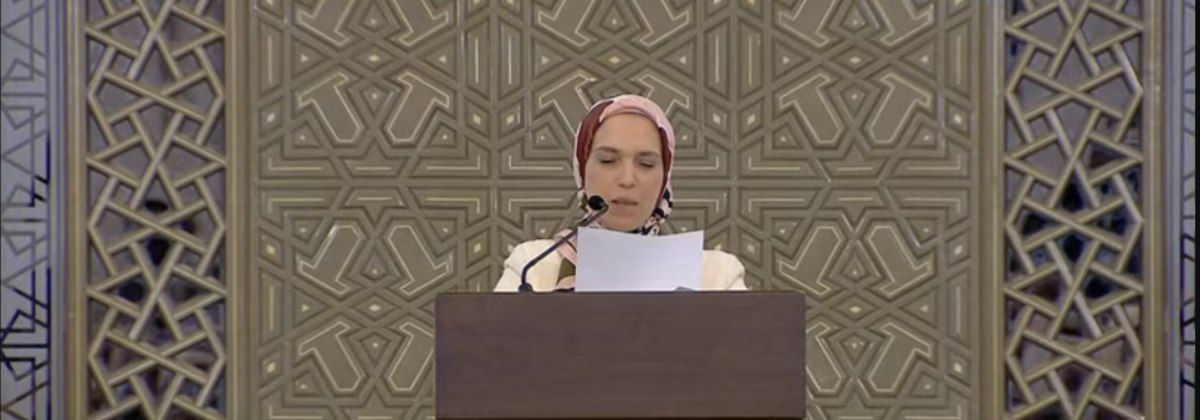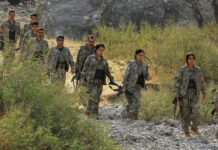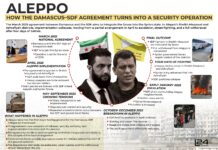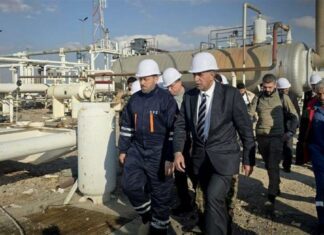
The Syrian National Dialogue Conference (SNDC) concluded today Feb. 25 after two days of deliberations aimed at shaping the country’s future, with nearly 600 participants issuing recommendations on governance, economic development, and national sovereignty. The conference, held at the People’s Palace in Damascus, marked the first such gathering in more than six decades, drawing a diverse range of political figures, civil society representatives, tribal leaders, and opposition members.
Key Outcomes & Political Roadmap
The conference’s final statement, read by Huda al-Atassi, a member of the preparatory committee, outlined 19 principles that will serve as guidelines for Syria’s transitional phase. The statement emphasized the unity and sovereignty of Syria, categorically rejecting any attempts at division or external interference. It also condemned Israeli incursions into southern Syria, calling for the immediate and unconditional withdrawal of Israeli forces and urging international pressure to halt further aggression.
Among the major political recommendations was the expedited issuance of a temporary constitutional declaration to fill the legal vacuum during the transitional period. The statement also called for the formation of an interim legislative council based on fair representation and competence, tasked with overseeing governance until a permanent constitution is drafted.
The statement further stressed the importance of transitional justice, advocating for the accountability of those responsible for past crimes, judicial reform, and mechanisms to restore rights to victims. It also underscored the need for freedom of expression, human rights protections, gender equality, and the inclusion of youth and civil society in state-building efforts.
On economic policy, the conference called for reforms to Syria’s agricultural and industrial sectors, along with incentives to encourage investment and reconstruction. The statement renewed calls for the lifting of international sanctions, arguing that they hinder Syria’s recovery and the return of displaced citizens.
Broad Participation & Constructive Debate
The SNDC divided participants into six working groups, each focusing on transitional justice, constitutional drafting, governance, personal freedoms, economic recovery, and civil society’s role in the new Syria. Many attendees lauded the inclusive nature of the conference, noting that it brought together a broad spectrum of Syrian society, including former opposition figures, intellectuals, journalists, and business leaders.
Former Syrian National Coalition head Khalid Khoja described the discussions as “mature,” praising the diversity of perspectives. However, he criticized the short timeframe of the conference, arguing that more time was needed for thorough discussions. “The issues at hand require deeper engagement, especially regarding security threats and the Israeli provocations in the south,” Khoja said.
Journalist Suad Jarous highlighted the importance of continued dialogue, calling for the creation of a permanent dialogue institution to ensure that the conference’s recommendations are implemented. “This was not the beginning of the dialogue—Syrians have been debating their future in homes and public spaces for years. This conference was a culmination of that societal dialogue,” she said.
Drafting the Constitution
While the recommendations issued by the SNDC are not legally binding, they are expected to serve as guiding principles for the new Syrian government, which is set to be formed next month. The transitional phase will include drafting a permanent constitution, a process that is estimated to take up to three years. The government will also oversee the organization of free and fair elections, which could take an additional four years to implement.
Hassan Al-Daghim, spokesperson for the SNDC’s preparatory committee, acknowledged concerns about the short duration of the conference but hinted that future sessions could be held if participants request them. “This is just the beginning. The dialogue does not stop here,” he stated.
As Syria navigates this crucial period of transition, the outcomes of the National Dialogue Conference will likely play a pivotal role in shaping the country’s political and economic future, setting the stage for a new chapter after years of conflict and instability.








